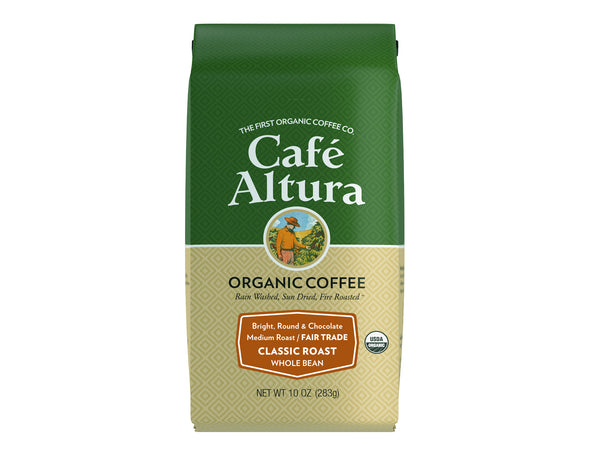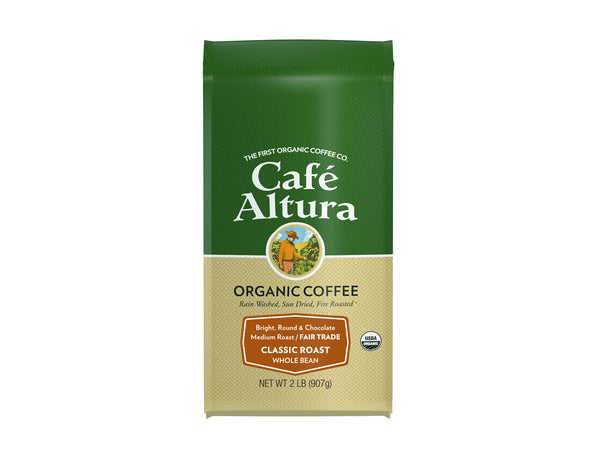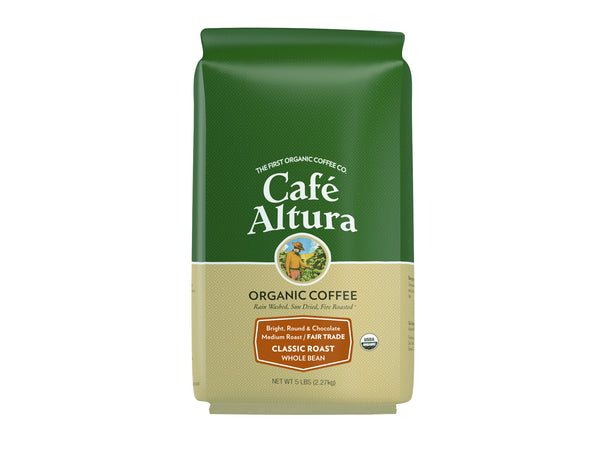Classic Roast Fair Trade
Crafted to support ethical coffee business practices, Classic Roast is a blend of seasonally selected Fairtrade certified coffees from the Americas and Indonesia. One of our most balanced offerings, Classic Roast is a medium roast which offers both a delicious, rounded cup and the opportunity to support the economic viability of coffee farming around the globe.



Country: Peru, Indonesia
Producer: COOPARM, Sara Ate Cooperative
Altitude: 1000-200 Meters
Cultivar: Various
Process: Fully washed
Certification: Organic, Non-GMO & Fair Trade
COOPARM - This coffee is produced by members of Cooperativa Agraria Rodríguez de Mendoza (COOPARM), which is an association of approximately 650 small coffee producers from eleven districts within the Provincia de Rodríguez de Mendoza in the department of Amazonas, Peru. COOPARM was founded on October 27, 2007 to offer quality coffee while ensuring more income for its members. COOPARM provides comprehensive technical assistance to producers, from seed selection to coffee processing. COOPARM also has an integrated pest and disease management program aimed at teaching producers how to control coffee diseases such as coffee rust and coffee berry borer. COOPARM emphasizes practices that protect the environment, including a partnership with Fundacion Amazonia Viva that helps farmers earn income from the sale of Carbon Credit Offset when they plant native timber species. COOPARM, in collaboration with the local hospital, funds cervical and breast cancer screening for its members and the community.
Sara Ate Cooperative - Tradition runs deep in the Takengon highlands of the Aceh province, a growing region acclaimed among coffee experts for its cup profiles and classic Indonesian style of coffee cultivation and processing. This lot was cultivated and harvested by members of the Sara Ate Cooperative, which was founded in 2011. The cooperative has more than 500 members with farms that average less than 3 acres in size. Producers belong to the Gayonese ethnic group and maintain a traditional village lifestyle. A large percentage of the producers are women who rely on coffee income to support their families. Each producer carefully sorts their harvested cherries before depulping and fermenting overnight with small micro-mills. Then the coffee is washed and laid out on patios to shed the excess water from the parchment covered beans. Next the coffee takes a detour from the conventional path of processing in other origins, wherein, the coffee parchment is removed while the coffee still has a high moisture content. This wet-hulling process, called Giling Basah in the Indonesian language, leaves the coffee bean exposed while drying on patios to a moisture percentage acceptable for export. This Indonesian processing method gives the bean its unique bluish hue and the hallmark Indonesian profile. With Indonesian coffees, half the battle is overcoming logistical challenges like rugged roads and unpredictable torrents of rain. Sara Ate Cooperative takes on an important role of organizing local warehouses and transportation so farmers can overcome these challenges and swiftly bring the coffee to the international market, ensuring greater earnings from direct trade relationships.






